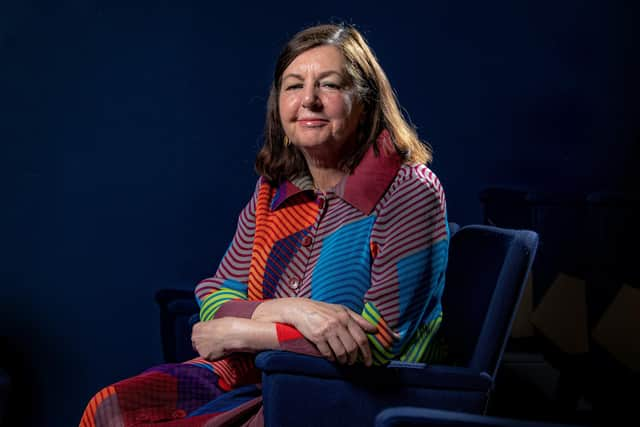Ex-Channel 4 news boss 'disinvited' from BBC shows after explaining her Gary Lineker views
Dorothy Byrne, former Channel 4 editor-at-large who is now president of Murray Edwards College at Cambridge, revealed that she had been invited to appear on several BBC programmes including Newsnight and the Today programme to discuss the controversy over his tweets about the Government's migrant policy last month.
She said when she explained she wanted to say on air that the matter was being given excessive coverage, “they didn’t want me on”.
Advertisement
Hide AdAdvertisement
Hide Ad"My strong belief is that the reason they felt they had to give such huge coverage to the Gary Lineker story was they felt they had to prove to politicians they were duly impartial,” she said.


"I believe that fear of politicians’ wrath influenced their news values and fear of politicians should never influence what you broadcast. You should broadcast what is right, proportionate and important.”
Lineker posted a tweet in which he said the language used by the Government to promote its asylum plans was not dissimilar to 1930s Germany. After days of coverage, including leading BBC news bulletins, he was taken off air by the broadcaster. He later returned to his Match Of The Day presenting role following a boycott by top on-air talent.
Byrne was speaking to The Yorkshire Post during a visit to the University of Leeds this week before it was announced on Friday that BBC chairman Richard Sharp was resigning after being found to have broken the rules by failing to disclose he played a role in getting Boris Johnson an £800,000 loan guarantee.
Advertisement
Hide AdAdvertisement
Hide AdByrne, who received national media attention in 2019 for calling Mr Johnson a “known liar”, told an audience at the University of Leeds that she had received “increasingly desperate texts” from several BBC programmes asking for her view on the Lineker situation.
She said: “To each request, I said the same thing. I would happily come on to decry the way the BBC was being manipulated by PR machines using Garygate to distract attention from the real issue - which was whether the government’s policy on refugees was moral, legal or viable. But I would not contribute to the confabulated story about a crisis in the BBC’s reputation for impartiality.
“I said I understood why the Gary Lineker story would be on the front page of the right wing press every day, along with Harry and Meghan. But why was the BBC doing the same? When I said that was the only view I would give, they didn’t want me. My voice was denied. How impartial was that?”
She added: “The story grew bigger of course when other football pundits refused to do BBC match coverage. Everyone was talking about it – but, as we all know, what’s interesting to the public isn’t the same as what’s in the public interest. There is no way BBC outlets would have devoted such huge coverage to the Lineker story if it had not involved the BBC itself. Gary Lineker is not a politician or a political journalist, he’s a freelance sports commentator. The story did not merit the coverage given to it by the BBC. Their excessive coverage fuelled the fake crisis in their journalism and signalled fear of politicians’ disapprobation.”
Advertisement
Hide AdAdvertisement
Hide AdByrne told The Yorkshire Post the BBC needs to be “braver” in its news coverage.
"They need to be confident in their own news values while being open to criticism and listening to critics.
"Over the years I have seen the BBC be frightened of politicians and I don’t think that is right. Fear of politicians should not determine how a broadcaster acts. We have regulation and the BBC has well set-down principles for its journalism and it should abide by those principles, not worry about politicians.”
A BBC spokesperson said: “BBC programmes make their own editorial decisions and it’s quite normal for interviewee line-ups to change on live programmes.”
The BBC has launched an independent review of its social media guidance for freelancers following the impartiality row prompted by Lineker’s tweets.